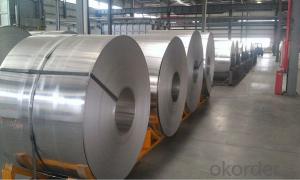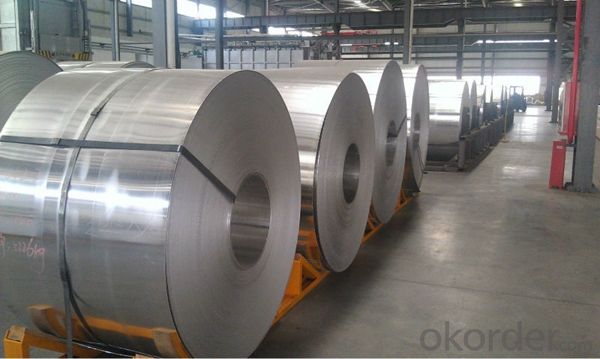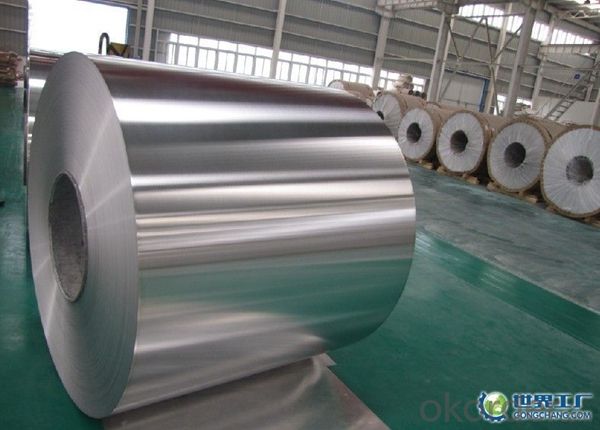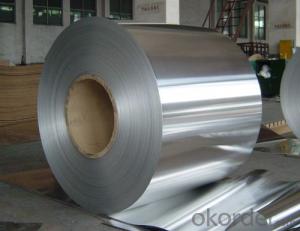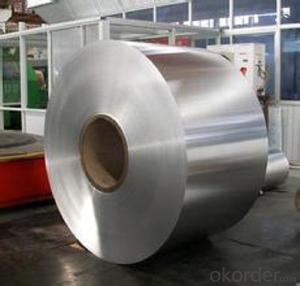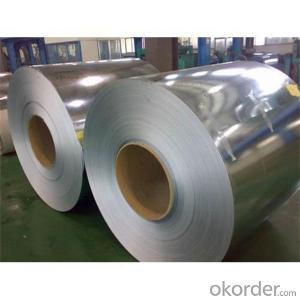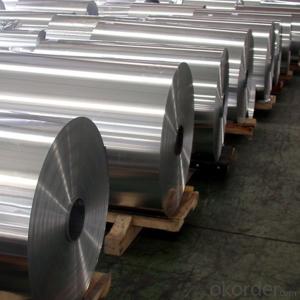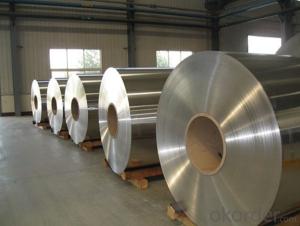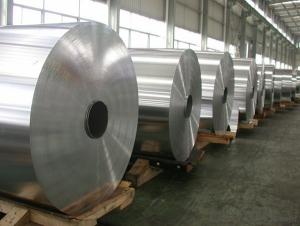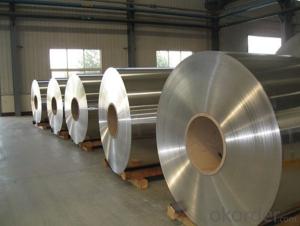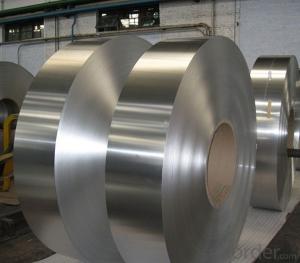Aluminum Coil Slitting Machine for Sale - Hot Rolled Aluminium Coil AA1070 for Building
- Loading Port:
- Shanghai
- Payment Terms:
- TT OR LC
- Min Order Qty:
- 5 m.t.
- Supply Capability:
- 10000 m.t./month
OKorder Service Pledge
OKorder Financial Service
You Might Also Like
Specification
1. Specification of Factory Supply Hot Rolled Aluminium Coil AA1070 for Building
characteristics | Application |
1) Super peeling strength | 1) Building exterior curtain walls |
2) Excellent surface flatness and smoothness | 2) Decoration and renovation additions for old buildings |
3) Superior weather, corrosion, pollutant resistance | 3) Decoration of interior walls, ceilings, bathrooms, kitchens and balconies |
4) Even coating, various colors | 4) Shop door decorations |
5) Fireproof, excellent heat and sound insulation | 5) Advertisement board display platforms and signboards |
6) Superior impact resistance | 6) Wallboards and ceilings for tunnels |
7) Lightweight and easy to process | 7) Industrial materials, materials for vehicles and boats |
2. Application of Factory Supply Hot Rolled Aluminium Coil AA1070 for Building
(1).Interior: wall cladding, ceilings, bathrooms, kitchens and balconies, shutters, doors...
(2).Exterior: wall cladding, facades, roofing, canopies, tunnels, column covers , renovations...
(3).Advertisement: display platforms, signboards, fascia, shop fronts...
3. Feature of Factory Supply Hot Rolled Aluminium Coil AA1070 for Building
• Our goods quality is top, the surface is smooth, and every steel coil
• No Joint, No Bends, no spots, no roller marks.
• MTC will be provided with goods, third part inspection is acceptable, for example, SGS, BV. Etc
Be free from Oil Stain, Dent, Inclusion, Scratches, Stain, Oxide Dicoloration, Breaks, Corrosion, Roll Marks, Dirt Streaks and other defect which will interfere with use
4. Certificate:
SGS and ROHS(if client request, paid by client), MTC(plant provided), Certificate of Origin(FORM A, FORM E, CO), Bureau Veritas and SGS (if client request, paid by client), CIQS certificate
5. Image of Factory Supply Hot Rolled Aluminium Coil AA1070 for Building
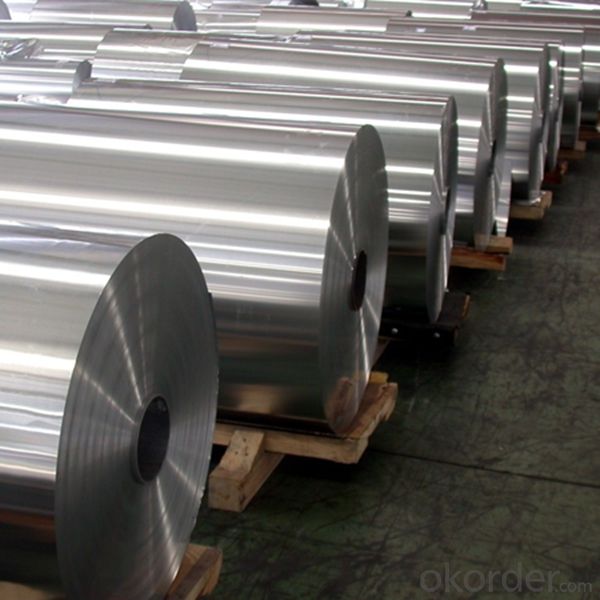
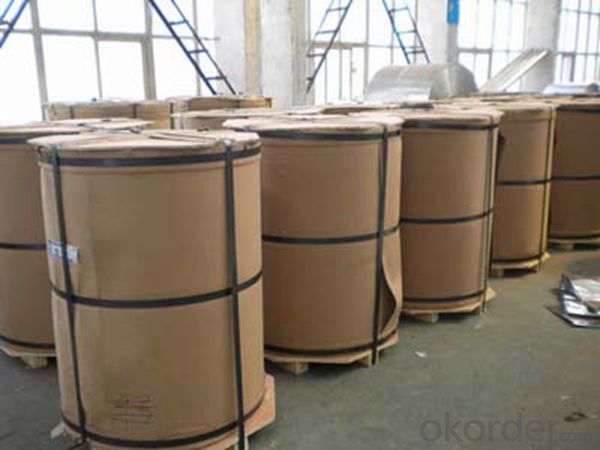
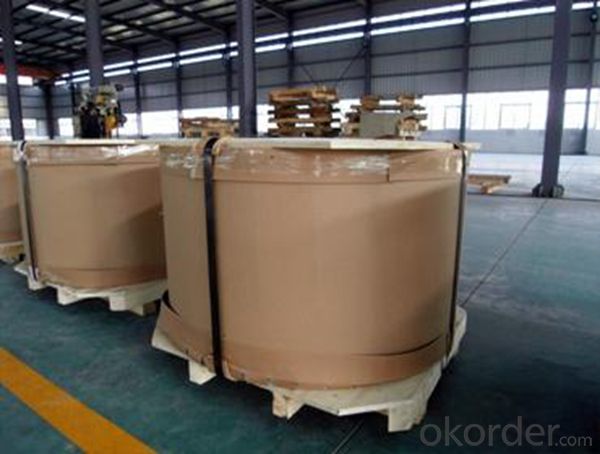
6. Package and shipping of Factory Supply Hot Rolled Aluminium Coil AA1070 for Building
eye to wall
eye to the wall
with wood pallet (wooded case also available)
7. FAQ
1) What is the delivery time?
Dpends on actual order, around 20 to 35 days
2)What is the QC system:
We have QC staff of 20 persons and advanced equipment, each production is with MTC traced from Aluminum ingot lot.
3) What market do you mainly sell to?
Australia, America, Asia, Middle East, Western Europe, Africa etc
- Q: Can aluminum coils be used in the production of heat shields?
- Yes, aluminum coils can be used in the production of heat shields. Aluminum has excellent thermal conductivity, making it an effective material for transferring and dissipating heat. Additionally, it is lightweight and has good corrosion resistance, making it suitable for various applications where heat protection is required, such as in automotive or aerospace industries.
- Q: How are aluminum coils used in the production of transportation vehicles?
- Aluminum coils play a crucial role in the production of transportation vehicles, especially automobiles and aircraft. These coils are typically made from high-quality aluminum alloys due to their lightweight nature, excellent strength-to-weight ratio, and corrosion resistance characteristics. In automobile manufacturing, aluminum coils are primarily used in the construction of vehicle bodies, including the frame, doors, hoods, and trunk lids. The lightweight nature of aluminum allows for reduced fuel consumption and improved overall energy efficiency, making it a preferred choice for vehicle manufacturers aiming to meet stringent environmental regulations and enhance fuel economy. Aluminum coils are also utilized in the production of aircraft, where weight reduction is of utmost importance to ensure optimum flight performance. By incorporating aluminum coils in key components such as fuselages, wings, and engine parts, aircraft manufacturers can achieve significant weight savings while maintaining structural integrity and durability. The use of aluminum coils in transportation vehicles also contributes to improved safety standards. Aluminum's exceptional crash energy absorption capabilities make it an ideal material for manufacturing impact-absorbing structures, such as bumpers and crash boxes in automobiles, providing enhanced protection to passengers during collisions. Furthermore, aluminum coils offer excellent heat dissipation properties, reducing the risk of overheating in engines and other critical vehicle systems. This thermal management capability is particularly beneficial in high-performance vehicles, where efficient cooling is paramount to maintain optimal operating conditions. In summary, aluminum coils are extensively used in the production of transportation vehicles to leverage their lightweight, strong, corrosion-resistant, and thermally conductive properties. By incorporating aluminum coils in vehicle manufacturing, automobile and aircraft industries can achieve weight reduction, improved fuel efficiency, enhanced safety, and superior performance, thereby meeting evolving market demands and sustainability goals.
- Q: Can aluminum coils be used for industrial piping?
- Yes, aluminum coils can be used for industrial piping. Aluminum is a lightweight and corrosion-resistant material, making it suitable for various industrial applications, including piping systems.
- Q: What are the different surface finishes available for aluminum coils?
- There are several different surface finishes available for aluminum coils, including mill finish, brushed finish, embossed finish, anodized finish, and painted finish.
- Q: What are the potential applications of perforated aluminum coils?
- Perforated aluminum coils offer a wide range of potential applications due to their unique characteristics and versatility. Here are some of the potential uses of perforated aluminum coils: 1. Architectural applications: Perforated aluminum coils can be used in architectural projects for facades, sunscreens, and cladding systems. The perforations can create aesthetically pleasing designs while also providing ventilation and sun control. 2. Filtration systems: The perforated holes in aluminum coils allow them to be used as filters for various applications. They can be utilized in air, liquid, or gas filtration systems, ensuring the removal of contaminants while maintaining an efficient flow. 3. Industrial equipment: Perforated aluminum coils can be incorporated into industrial equipment such as heat exchangers, condensers, and evaporators. The perforations aid in heat transfer, promoting efficient cooling or heating processes. 4. Automotive industry: The lightweight and durable nature of perforated aluminum coils make them suitable for the automotive industry. They can be used in the manufacturing of automobile parts like grilles, radiator covers, and engine components, providing both functionality and aesthetic appeal. 5. Acoustic panels: The perforations in aluminum coils can help in sound absorption and noise reduction. They can be used in the construction of acoustic panels for auditoriums, theaters, recording studios, and other spaces where sound quality is crucial. 6. Decorative applications: Perforated aluminum coils can be utilized for decorative purposes in interior design projects. They can be shaped into screens, room dividers, or wall panels, creating visually appealing patterns and adding a touch of modernity to spaces. 7. Agricultural applications: Perforated aluminum coils can find applications in the agricultural sector. They can be used in crop protection systems, allowing for controlled air circulation while protecting plants from pests or excessive sunlight. 8. Energy-efficient solutions: The perforations in aluminum coils can be beneficial for energy-efficient applications. They can be incorporated into solar panels, allowing light to pass through while maintaining structural integrity. Overall, perforated aluminum coils offer a wide range of potential applications across various industries, including architecture, filtration, industrial equipment, automotive, acoustic panels, decorative projects, agriculture, and energy-efficient solutions. The versatility, lightweight, durability, and aesthetic appeal of these coils make them a popular choice for many different uses.
- Q: I need to lay down two 3 welds on some 1/8 aluminum but my welder is not set up for it. could i just out fit my welder with aluminum wire without buying the spool gun and get the same results? or maybe I should just get a welding shop to do it for me?
- - its easy to put a spool of Al wire in a mig welder, but that isn't the issue. as mentioned previously, the Al wire is very soft and may present problems feeding through the long feed tube. hence the design of the spool gun ... tube length = none ... no
- Q: Are aluminum coils suitable for electrical insulation?
- No, aluminum coils are not suitable for electrical insulation as aluminum is a conductor of electricity, meaning it allows the flow of electric current rather than insulating it.
- Q: How do you clean and maintain aluminum coils?
- To clean and maintain aluminum coils, you can follow a few simple steps. First, gather the necessary materials, including a soft brush or vacuum cleaner, a mild detergent or coil cleaner, a water hose, and a spray bottle. Start by turning off the power supply to the unit and ensuring that it is safe to proceed. Next, remove any debris or loose dirt from the coils using a soft brush or a vacuum cleaner with a brush attachment. Be gentle to avoid damaging the fragile fins of the coils. Once the loose dirt is removed, mix a solution of mild detergent or coil cleaner with water in a spray bottle. Spray the solution onto the coils, ensuring that it covers the entire surface. Let it sit for a few minutes to allow the solution to penetrate the dirt and grime. After the solution has had time to work, use a soft brush or a soft cloth to gently scrub the coils. Be careful not to apply excessive pressure or use abrasive materials, as this could cause damage. Pay extra attention to any areas with stubborn dirt or buildup. Once you have thoroughly cleaned the coils, rinse them off with a water hose. Ensure that all the detergent or coil cleaner is completely washed away. Make sure to direct the water flow in the opposite direction of the air flow to avoid pushing debris further into the coils. After rinsing, allow the coils to dry completely before turning the power supply back on. This will prevent any potential electrical hazards. You can use a fan or leave the coils to air dry naturally. To maintain the cleanliness of the coils, it is recommended to clean them at least once a year or more frequently if the unit is exposed to heavy dirt or debris. Regularly inspecting the coils for dirt buildup and promptly cleaning them will help maintain the efficiency and extend the lifespan of the aluminum coils.
- Q: What are the storage life and shelf life of aluminum coils?
- The storage life and shelf life of aluminum coils can vary depending on various factors such as the storage conditions and the specific type of aluminum alloy used. Generally, aluminum coils have a relatively long storage life and shelf life. In terms of storage life, aluminum coils can be stored for an extended period of time without significant degradation in their quality or performance. However, it is important to store them in a dry and well-ventilated area to prevent corrosion. Moisture can cause oxidation and corrosion, which can affect the integrity and durability of the aluminum coils. As for the shelf life, aluminum coils can remain in good condition and retain their functional properties for an extended period of time when stored properly. The exact shelf life will depend on the specific application and the intended use of the aluminum coils. To ensure the longevity of aluminum coils, it is recommended to follow the manufacturer's guidelines for storage and handling. Additionally, regular inspections and maintenance can help identify any signs of corrosion or damage and take appropriate measures to prevent further deterioration.
- Q: Is it possible to use a saw to cut aluminum coils?
- <p>Yes, aluminum coils can be cut with a saw, but it's important to use the right type of saw. A hacksaw or a fine-toothed metal cutting saw is suitable for cutting aluminum. Lubrication is also crucial to reduce friction and prevent the saw blade from overheating. When cutting aluminum, it's advisable to use a cutting fluid or a light machine oil to keep the blade cool and ensure a clean, smooth cut. Always follow safety precautions and wear appropriate protective gear when cutting metal.</p>
Send your message to us
Aluminum Coil Slitting Machine for Sale - Hot Rolled Aluminium Coil AA1070 for Building
- Loading Port:
- Shanghai
- Payment Terms:
- TT OR LC
- Min Order Qty:
- 5 m.t.
- Supply Capability:
- 10000 m.t./month
OKorder Service Pledge
OKorder Financial Service
Similar products
Hot products
Hot Searches
Related keywords
